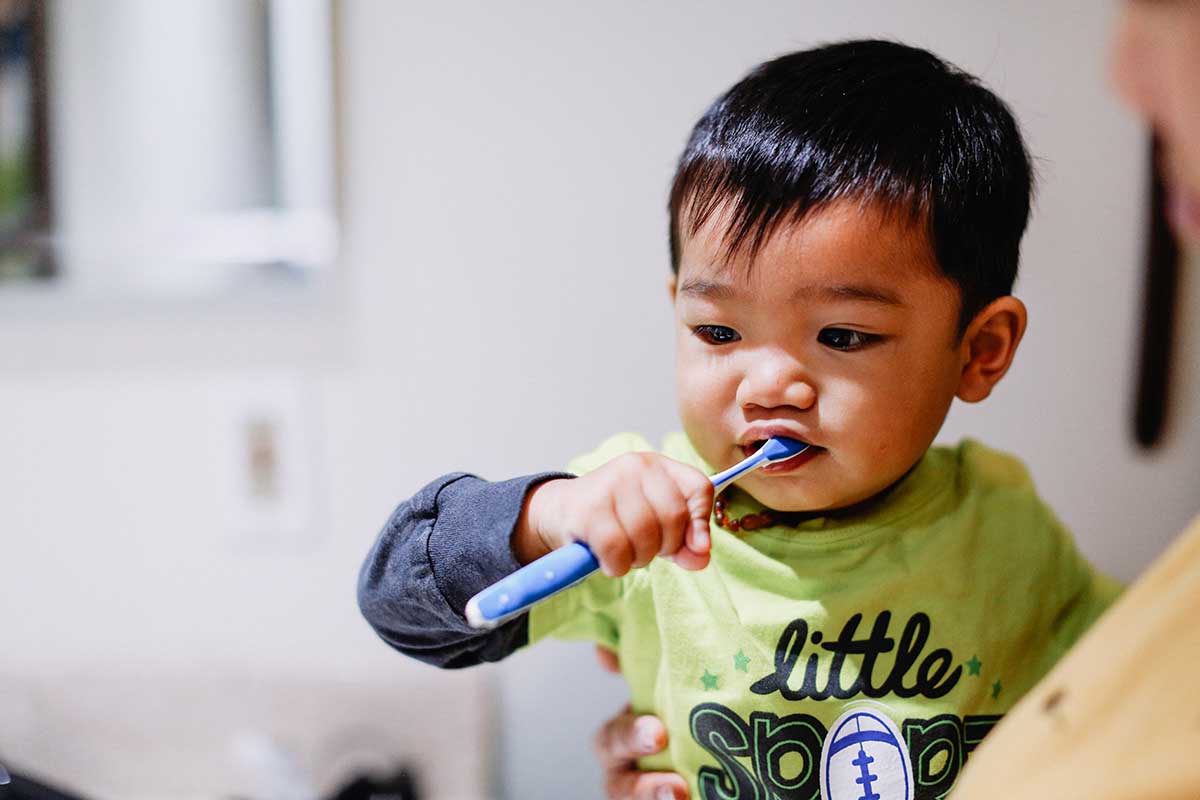
For many parents, the six- to nine-month stage of their baby’s life will be one of most enjoyable so far.
You continue to tune in and understand what your baby wants and needs and their smiles and interactions are the gifts that keep giving.
Ngala’s acting director of nursing, Penny Walls, explains what else you can expect during this time.
What to expect and key milestones
“This is an exciting time as your baby’s memories are developing,” says Walls. “Through relationships, your baby learns whether the world is safe and secure and whether they feel cared for.”
During this time a baby’s speech and language skills increase. Some babies start to recognise their own name as well as key objects and words. Their interest in food and eating also increases.
“Your baby could be managing different food textures and have more developed hand to mouth coordination,” says Walls.
“As your baby’s confidence increases, they’ll start to roll back and forth and even practice at night.”
Separation anxiety
Separation anxiety is a normal stage of development. In fact, 80 per cent of babies experience it at some stage.
“Babies start to show strong attachments to people and things and get upset if these are out of sight,” says Walls. “Some babies also start to develop some stranger recognition and will look to you for reassurance during this time.”
Gently increase your baby’s confidence with separation by starting with short times apart.
“A good time to do this is when preparing for childcare. This will help them gradually build their confidence, so they’re ready for the new environment and people,” advises Walls.
“It’s important to give your child positive experiences of separations and reunion to prepare them for coping with any changes they experience in their lives.”
Teething
Teething generally happens anytime between 4-10 months, but every baby’s different. It’s the same when it comes to discomfort.
“Some babies may experience more discomfort than others and they may show differing symptoms,” says Walls.
Teething symptoms may include chewing on fingers or toys and increased drooling. It can also impact on a baby’s sleep and feeding.
Once teeth start to appear, it’s important to introduce dental care.
“At this time your baby may become more confident with a cup and will enjoy water to drink which will benefit their dental care,” says Walls. “You can start cleaning your baby’s teeth by wiping with a soft cloth or brushing with a small soft toothbrush and water.”
Crawling
Crawling is an important skill for your baby to learn. It’s a huge developmental milestone and provides them with the opportunity to explore the world around them.
Prior to crawling, your baby develops strength through other physical skills. These include rolling, sitting, head control, and moving their arms and legs.
“Your baby may start to commando crawl, crawl on hands and knees forwards or backwards,” says Walls. “Some babies just shuffle along on their bottom.
“Help your baby learn to crawl by spending tummy time together, playing on the floor and enjoying your interaction.”
As soon as your baby is mobile, ensure your home is safe by buying things like baby gates, plug covers and cupboard locks.
Language
As your baby starts to interact, they’ll copy sounds such as laughing, coughing or blowing raspberries.
Towards nine months, they also start to communicate through gestures such as pointing or clapping and may start to say clearer sounds that are recognisable as ‘mamma’ and ‘dada’.
Encourage and develop your baby’s language skills by chatting to them, showing delight in communicating with them, smiling and playing games such as peek a boo.
“Spending time connecting to your baby with language and facial expressions shows them that you’re interested in what they’re saying and that you can learn and practice together,” says Walls.
“Pointing to objects such as the trees and the birds will also guide baby’s language development and connection with the environment around them.”
Tips for parents
Toys and games
Remember your baby’s favourite toy is you. She loves to watch your face, listen to your voice and generally be with you.
Ideal games and activities include peek a boo, singing and reading books. Use toy libraries to save extra costs and see whether your baby enjoys particular play activities and sounds.
Check the toys you give your baby to play with for safety and that they’re recognised as Australian standards safe. Choking hazards can occur as soon as your baby has hand to mouth coordination.
Introducing solids
Offer your baby soft or mashed food from a spoon or give them finger food so they can feed themselves. They’ll let you know what they prefer.
Let your baby show you the amount they’re ready to eat.
Be aware of choking risks at this time. Never leave your baby unattended when eating.
If your baby continues to struggle in adjusting to solids, you may need to seek medical support or review to make this experience less stressful for all.
There’s help if you need it
If you need reassurance or advice, call Ngala’s Parenting Line on 9368 9368 or attend an early parenting group at various centres across the Perth metro area.
With a referral to the day stay service, Ngala can offer hands on support with feeding and settling your baby.
Visit ngala.com.au for more information or email ngala@ngala.com.au